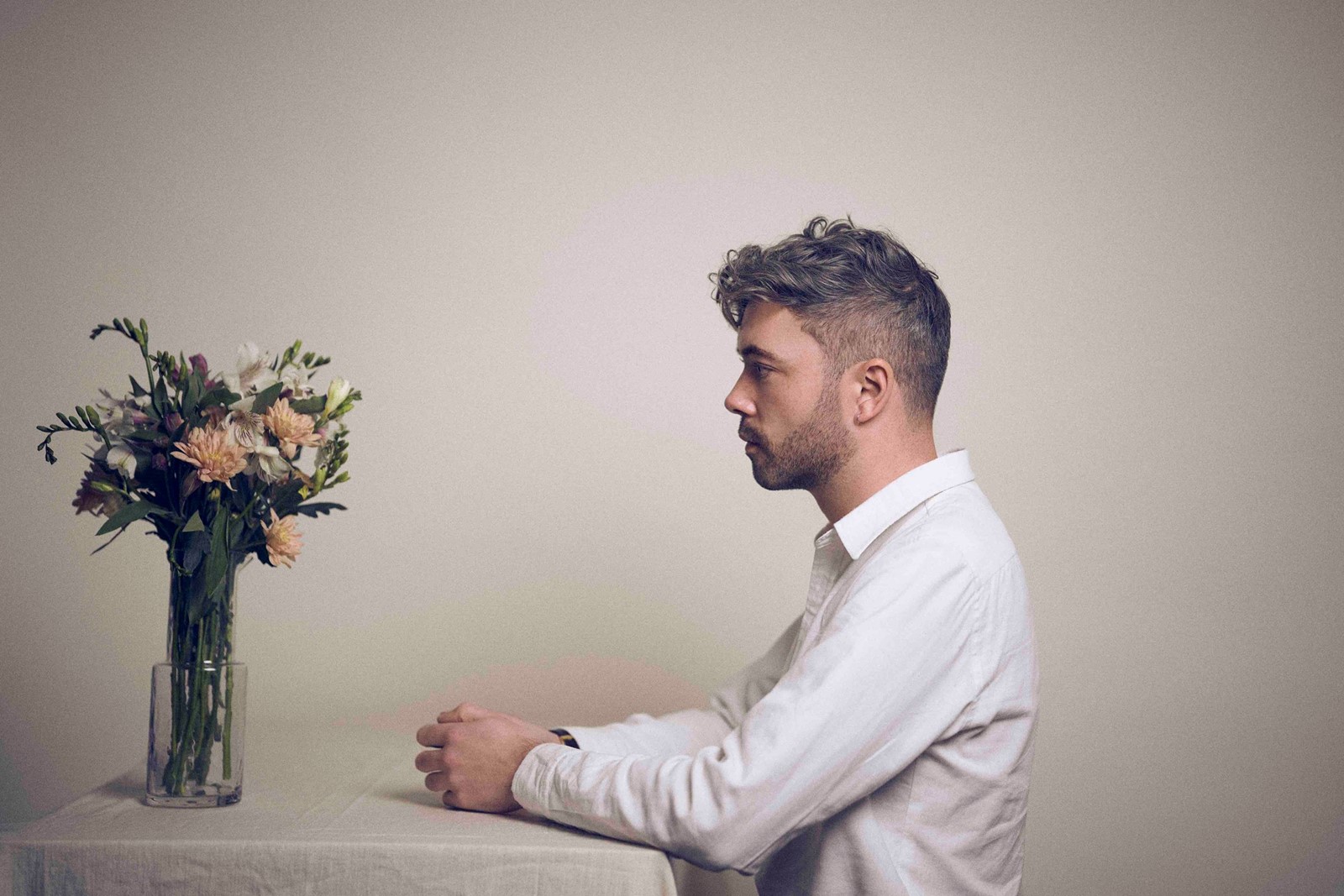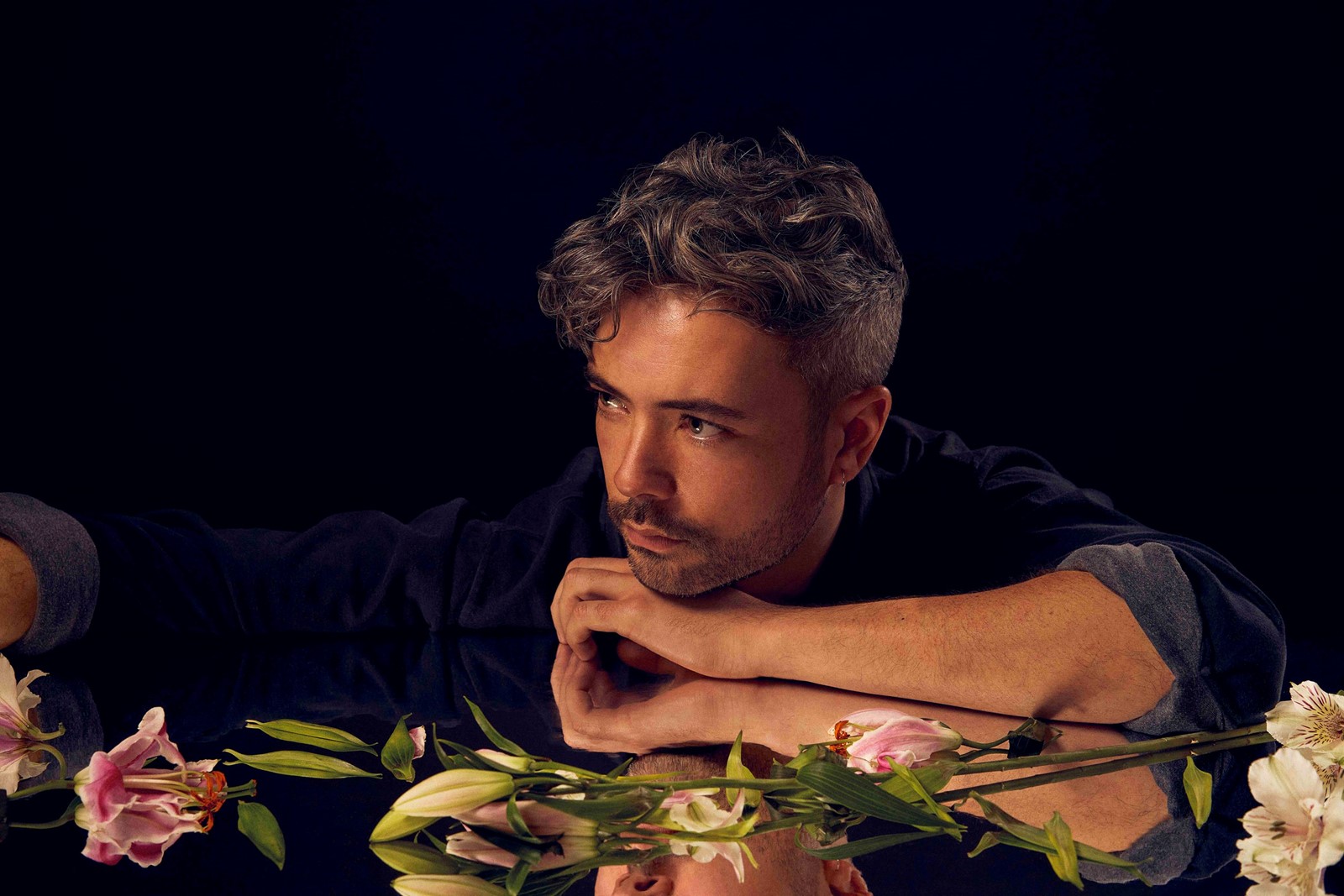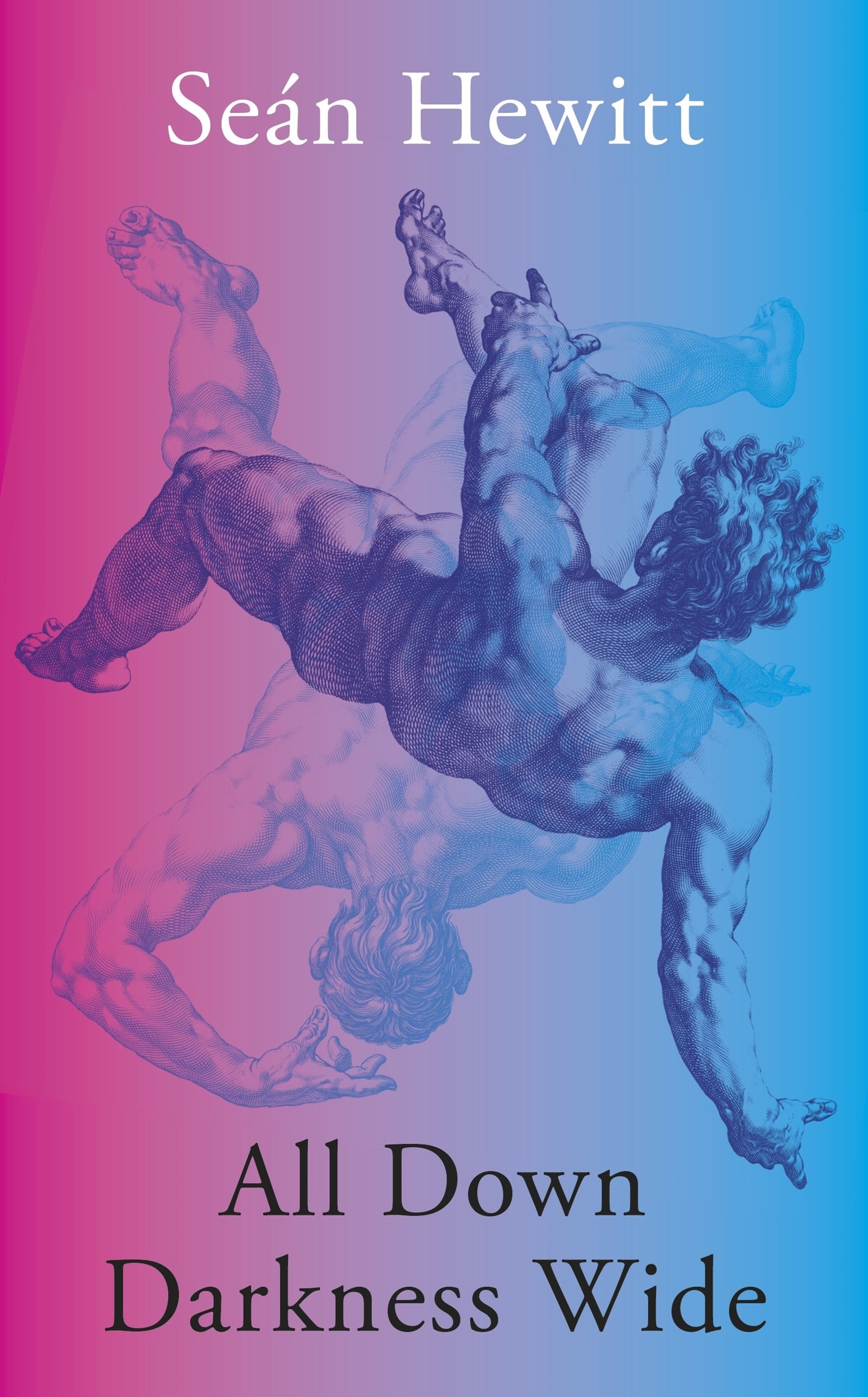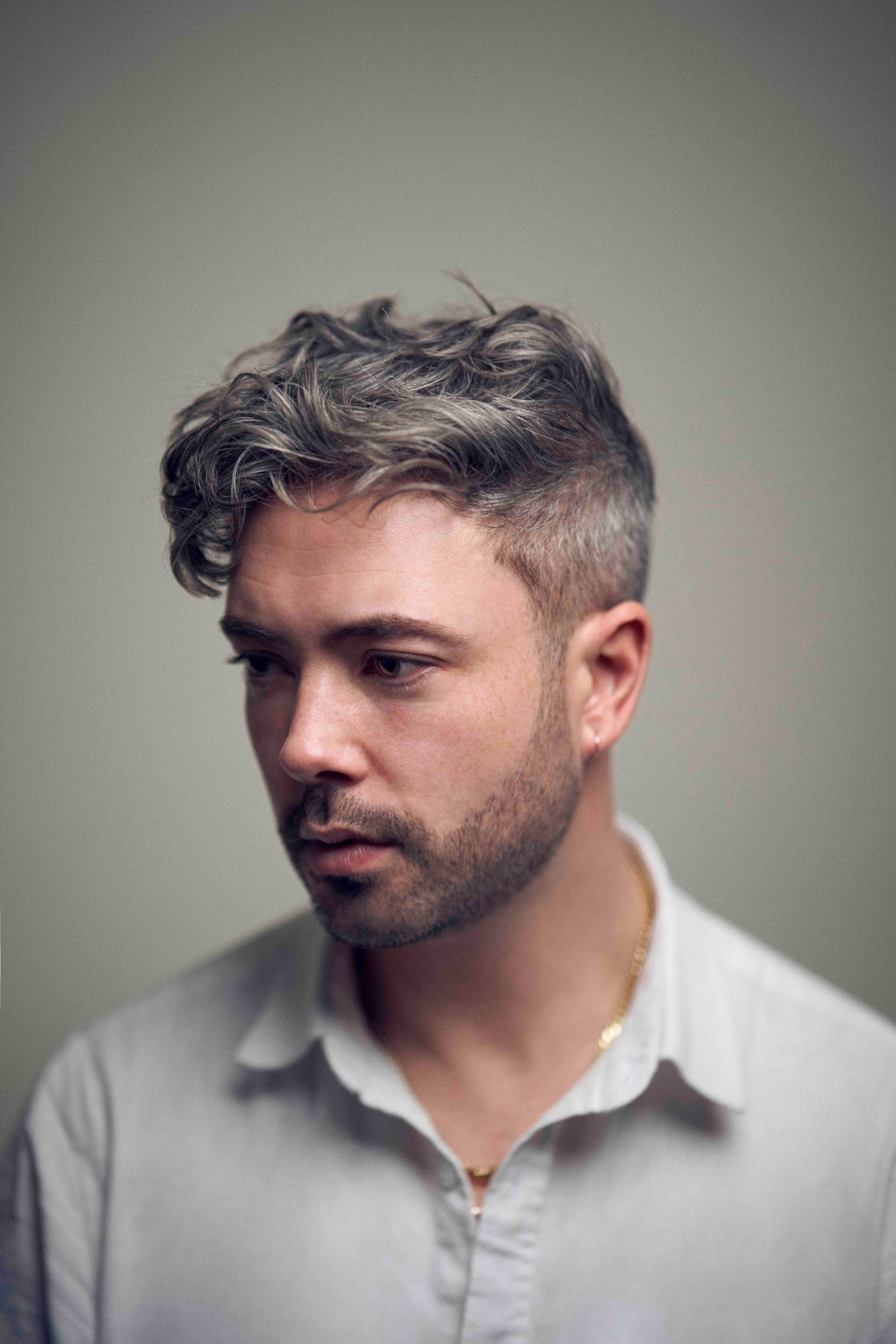Seán Hewitt’s memoir All Down Darkness Wide is filled with ghosts. Possessed from the opening few pages with the lingering phantom of the past, it’s a book that is not only preoccupied with Hewitt’s own narrative but also the lives, stories and spectres of shared histories that shape us into who we might become – as he writes in the opening few pages, “Everything, once you start to look, is haunted.”
Ghosts also stalked the pages of Hewitt’s debut poetry collection, the Laurel Prize-winning and critically acclaimed Tongues of Fire. Published in 2020, it is a charged and accomplished meditation on nature, grief, sex and shame, themes that similarly pour from the pages of All Down Darkness Wide. The memoir’s narrative core is concerned with Hewitt’s relationship with Elias, a Swedish man he meets while travelling after university and whom he quickly falls in love with. After living for a brief period in the UK, the couple emigrate to Gothenburg, where their romantic bliss is punctured. In devastating and heart-wrenching detail, Hewitt recounts Elias’s spiral into a suicidal depression that leaves him hospitalised and their relationship unravelling.
Hewitt – who lives in Ireland where he works as a literary critic and as a lecturer at Trinity College Dublin – brings his considerable talents as a poet to All Down Darkness Wide, which is filled with vivid, magnetic and deeply affecting prose. Eschewing conversational accessibility and modern observational relatability, Hewitt’s treats language, both in what is said and unsaid, as transcendent, filled with power but also the ability to fail us.
This is evident in the memoir’s narrative threads, namely Hewitt’s preoccupation with the life of Gerard Manley Hopkins, a Victorian-era Jesuit priest and poet who struggled with his sexuality and who acts as something of a temporal guide throughout. Through Hopkins, as well as other ghosts from his own past and the inherited sense of shame, loneliness, prejudice and trauma experienced by some queer people, Hewitt explores what it means to be a gay man and what it might take for queer people to discover themselves.
Below, Hewitt talks to AnOther about the form of memoir, queer lineages and reclaiming shame while writing about sex.

Alim Kheraj: Why was memoir the right format for All Down Darkness Wide?
Seán Hewitt: I wanted it to be a memoir primarily because it is real and it is true. I also realised while I was writing the memoir just how prevalent the theme of lying was in my own life, whether that was lying before I came out or continuing to lie in certain ways afterwards as a way of protecting myself or to create certain fictions. Writing a memoir seemed like the perfect antidote to that because it is a truth-telling exercise.
But there was only so far that I could take that, so I also wanted to tell other sorts of truth that led me to bend, I think, what the memoir is or could be. I didn’t want to adopt the tone of objective storytelling, narrated history or a linear tone so I borrowed from what I think the novel is good at, which is atmosphere and, primarily, a way in which the psychology of a character merges out into the environment. So in a way, I adopted the gothic novel as the form of the memoir and I kind of see it as a gothic memoir: it straddles the gap between the psychological truth of the novel and the way the mind creates fictions with the real-life narrative of memoir.
AK: Can you be absolute in truth while writing a memoir?
SH: Essentially, there are certain formal things that require you to bend truth, that might be just because life is dull in its linearity or it might be because there are certain levels of detail in reality that are too hard or unnecessary to hold in a book. But even in creating a story, you are bending the truth to fit the form. There’s a freedom in that, though, because if you start to push into the modes of fiction, you can then introduce, as I have, ghost figures and non-linear time. Also, when you’re writing about psychological trauma, the mind begins to work in ways that are not entirely fixed to objective reality. To make a home in the memoir for subjective ghosts, figments of imagination and movements back in time seemed to be closer to reality, the one that is actually experienced rather than the detailed objectivity of life.
“RuPaul might talk about choosing your own family, but I think choosing our own imagined spectral ancestors is a really important way of connecting to our own history” – Seán Hewitt
AK: You mention ghosts. How did the amalgamation of your own life and Hopkins’ come to be?
SH: I began writing this book with the very first scene that you have in the book, which is in the graveyard, and my original thought was that I would meet the ghost of Hopkins in this graveyard, in Liverpool where he used to live. What I had wanted to do with that was to connect this sort of chosen family of ghosts, these ancestral figures that we all might choose for ourselves who act as a sort of guidance or consolation, but who also challenge us as we go through life. There’s a sense of being entrapped by the stories of these ghostly figures and wanting to release yourself from that kind of cyclical narrative of history but also wanting to acknowledge the value of them.
I chose Hopkins because he’s someone that I’ve always loved. I didn’t find out he was queer until much later in my affair with him. It seemed in a quite uncanny way that we were connected not only geographically – I was raised just outside of Liverpool and moved to Dublin like he did – but thematically. My life has walked in his footsteps.
AK: Was there something specific about him that you were drawn to?
SH: I found particularly interesting the ways in which he bends his thought to accommodate both poetry and this really strict religious atmosphere. But the one thing that he couldn’t bend was his sexuality and that’s why it becomes really crippling for him. In that way, that’s kind of the warning that Hopkins gives you: he shows that you yourself cannot change so you have to change the external conditions. He didn’t change the external conditions and it led him to a really hard life.

AK: You mentioned this idea of the cyclical nature of history and patterns in life, and in the book, there is this wider sense of queer inheritance. When did you first understand that you were part of a queer lineage?
SH: In the book, I talk about giving blood as one of the first times that I realised it. There’s this idea of your blood being a physical carrier of other things and other people that will potentially betray you and your connections to other people. When you’re doing something as quotidian and perhaps embarrassing as getting an STI test, you have to mark down all of your interactions with other people and it becomes very clear that you do not own this blood in your body. It’s something that is connected to other people in a way that’s not inherited biologically.
That led me to think about what else we inherit from people that is not biological. I say towards the beginning of the book, ‘I realised my history was not my own’. That could be a debilitating realisation, but there’s also something incredibly freeing about it as well in that it reaches out into community and you realise that, fundamentally, the memoir cannot just be a history of you because you don’t produce yourself. And so that becomes one of the key questions of the book: what outside myself formed me?
AK: It reminded me of something a professor at university told me that Allen Ginsberg would say to people he would sleep with. He would tell men that they were inheriting a poetic lineage when he came because he had slept with someone who had slept with someone who had slept with Walt Whitman.
SH: It’s a very queer way of thinking because you’re not thinking in terms of inheritance from parents. We’re thinking of inheritance from a community of people. One thing that queer people often miss is this likeness to their parents and so it’s only natural that people go looking for this family of inheritance that doesn’t follow biological lines. Culture works in that way because we inherit ideas in a non-biological way. RuPaul might talk about choosing your own family, but I think choosing our own imagined spectral ancestors is a really important way of connecting to our own history.
“There is terrifying sex, there is sex as an expression of love or sex in a loving relationship, there is sex that is exploratory, and sex that is, I think, multifaceted” – Seán Hewitt
AK: One thing you avoid doing in the memoir is writing didactically or causally about the links between lived experiences and mental illness. How did you make sense or order of those themes?
SH: One thing I really struggled with while writing the memoir was that there doesn’t seem to be any clear or useful language for mental health. It’s a difficult thing to adequately put into words, which is one of the main problems of it. The minute you write the word ‘depression’ it loses some of its intent or meaning. The words themselves seemed flimsy, or at least overused, and don’t adequately capture the experience. That’s particularly difficult with mental health because talking therapy can be really important. But the idea of having to put yourself into language is one of the key barriers to being able to fix or acknowledge the issues you have. So in some ways I had to leave it unknowable.
AK: The memoir deals with some difficult periods in your life. What was it like revising those moments?
SH: It is a risky business because the closest analogy I could give to you was that it’s like doing unsupervised therapy. You have to inhabit those experiences, perhaps for months on end. And you have to get up in the morning and say, ‘Right, I’m gonna write this awful scene and I’m gonna have to live in it. And I’m gonna have to remember as much detail about it as possible in order to make it feel real and alive and urgent to the reader.’ We just don’t do that in daily life. We might remember certain things, but we don’t situate ourselves back at the deathbed of our father persistently for months at a time.

AK: Did it feel cathartic?
SH: No. I couldn’t actually say that I feel better having written the book. I feel like my life is more present to me after having read the book, but it makes everything that was sediment float up again.
AK: A friend of mine described the memoir as ‘so sad, so sexy’, and sex is often tied up with embarrassment or a need for absolution afterwards. There’s never a grand reclamation of sex, either. What do you think that says about the relationship between sex, desire and queerness?
SH: I think the reason that I went back to the teenage years so heavily in this book was because that was a time when all three of those things – sex, desire and queerness – become very conflicting and secretive in that a lot of us feel like we have no model for desire. Straight people have this sense of communal desire, but for queer people at that age, our desire isn’t shared. I think that loneliness in our desires can often lead to these forms of shame and embarrassment in sex. But what I wanted to do in the book was show you times at which sex means very different things. There is terrifying sex, there is sex as an expression of love or sex in a loving relationship, there is sex that is exploratory, and sex that is, I think, multifaceted.
AK: Does writing about sex allow you go gain control over it?
SH: Writing about sex allows you to remove the shame from it. I was able to neuter the shame from various sexual encounters that I did feel ashamed about. And to bring it back to why I wanted it to be a memoir; I wanted the revelation to excise the shame from the situations. A couple of weeks ago I was feeling quite anxious about the book, but one day I woke up and realised that I wasn’t ashamed of it. Even just realising that to myself was a very empowering thing.
All Down Darkness Wide by Seán Hewitt is published by Jonathan Cape, and is out now.
